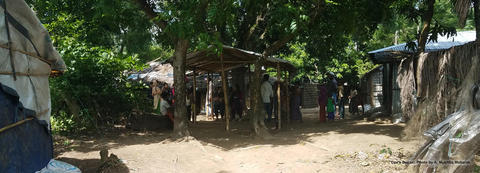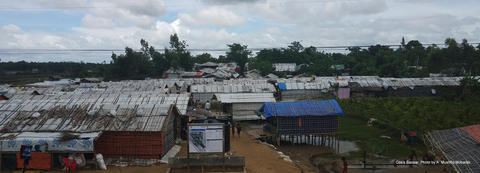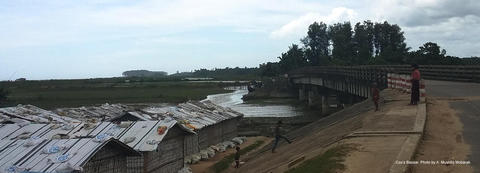The subject of migration is central to the questions of several disciplines, and it dominates news cycles globally, commanding both popular and political debate in our contemporary moment. The South Asian context is essential to both ongoing and retrospective conversations. The unfolding Rohingya crisis marks a phase of consternation about belonging, identity, and violence. The movement of hundreds of millions of labor migrants highlight the potential and complications of economic development. These topics are intimately tied to regional experiences, including the multiple partitions of South Asia over the course of the twentieth century. These ruptures have produced numerous geopolitical, affective, governmental, and surveillance frontiers.
The purpose of this conference is to gather an interdisciplinary group of scholars with expertise on South Asia to examine both the present moment and continuing legacy of the movement of people in the region. We will format the conference to stimulate interdisciplinary dialog, which we believe can offer value via the exchange of core motivating questions, modes of inquiry, standards of evidence, and directions for future research. We hope to integrate the perspective of multiple methodologies and disciplines, including, but not limited to history, economics, political science, anthropology, sociology, and literature.
One large benefit of deploying an interdisciplinary lens is the opportunity to rethink and problematize fundamental categories of analysis. For quantitative work, these categorizations translate directly into the task of measurement and have potentially large implications for the process of data collection. Categories to be examined include: which journeys and forms of mobility are labeled as “migrations”? How do constructs of race, class, and gender shape lived experiences as well as scholarly and policy-oriented conceptions of migration? Moreover, to what extent does tracing multiple migrations remake or undo any straightforward territorially bound concept of South Asia? In other words, what does South Asia become if we center processes of migration in our analyses?
Another benefit of cross-disciplinary dialogue is to reveal complications with the normative claims of other fields. For example, there is a growing body of evidence in development economics that internal migration drives economic growth, yet large spatial wage gaps persist in South Asia. These wage gaps may represent large losses in efficiency and output, suggesting significant frictions impeding migration. From the perspective of economic development, it is tempting to claim that removal of these frictions is an unambiguous good. Yet if these frictions are generated by pre-existing social structures, like within-family insurance networks, there may be unexpected and dramatic effects of their removal. These effects, and the appropriate measurement thereof, may be dramatically salient in other disciplines.
The animating purpose of this conference will be knowledge exchange and formation, particularly the kinds of knowledge easily overlooked from within a single field. Through valuable but unfortunately rare interdisciplinary interactions, this event will improve and encourage scholarship on an issue of enduring importance in South Asia.



